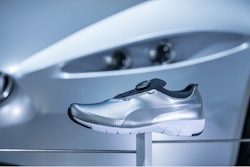A Simple Fix For Metal Defects
Metalworking has long been plagued by what are called "shear bands" — tiny defects that frequently occur when metal is cut.
But those could eventually be a thing of the past, according to researchers from Purdue University.
Their study sought to identify how shear bands form and develop a method that could control them.
When metal is being cut, the process often generates a sawtooth pattern that makes machining strong alloys, sheets and foils more difficult.
Purdue scientists used mathematical equations to analyze how metal behaves during cutting, and proposed a solution: a wedge-shaped tool placed opposite the cutting blade.
The wedge, in essence, forces the metal to deform evenly and eliminates the formation of shear bands.
Purdue officials filed several patent applications related to the research, and engineers said that the relatively simple process could dramatically improve manufacturing and metal processing -- including titanium, nickel and high-temperature materials used in the aerospace industry.
SO, WHAT DO YOU THINK?
What particular manufacturing operations could stand to benefit from better metalworking? Let us know your thoughts in the comments below.
Cutting Down Range Anxiety With Solar
While electric vehicles gain in popularity, many consumers are still leery of the technology due to the limitations to how far one can drive on a single charge — better known as range anxiety. It would seem that gaining more mileage from electric car batteries is essential if more gas and diesel devotees are going to make the switch. Now German-based Sono Motors hopes to solve the range anxiety problem using solar panels on its vehicle, the Sion commuter.
The company fit mono-cystalline silicon cells to the roof, bonnet, boot and sides of the car and covered them with an 8 mm layer of polycarbonate. The company claims the vehicle will get around 18.6 mi of range from the sun over the course of an average day, but says it is technically possible that the car's 349 solar cells, producing a peak 1,144 watts at 22 percent efficiency, are enough to provide 40.4 miles of range per day. The Sion will come in two models: Urban with a 74 mile range and Extender with a 155 mile range. Both models can be charged to 80 percent in a half hour and should be available in 2018.
SO, WHAT DO YOU THINK?
Will solar panels be enough to get consumers to make the switch to electric vehicles? Tell us what you think by leaving your comments below.






















